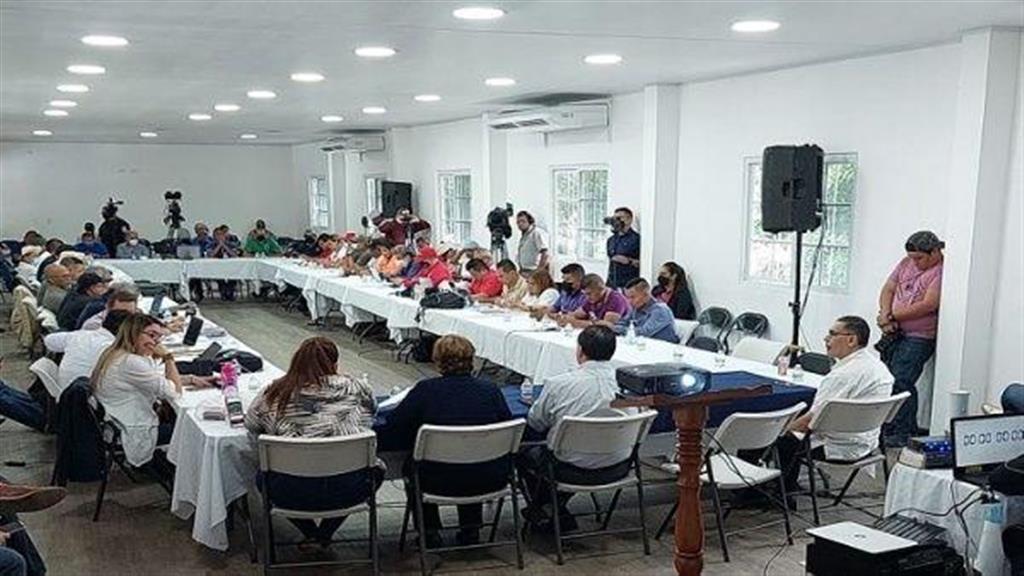![]()

Panama City, Sep 14.- New differences between popular organizations in Panama and representatives of the Executive caused the failure of the Catholic Church’s attempt to move on to a second phase of the social dialogue initiated last July 21.
Members of the National Alliance for the Rights of the Organized People (Anadepo) opposed to meet with private businessmen who refuse to comply with the agreements of the first stage and do not recognize the collectives.
Regarding the meeting the day before in the Archdiocese of Panama, convened by Monsignor José Domingo Ulloa, in his role as facilitator of the talks, Alirio Prado, of Anadepo, questioned continuing discussions on other points without still not fulfilling those agreed in Penonomé, capital of the province of Coclé, on fuel, food, medicines, electric energy and social security, among others.
Without a clear outlook and without a date to start the second phase, tomorrow, Thursday, September 15, the plenary will be resumed in Coclé, where the parties will present their positions.
The preparatory meeting, which took place behind closed doors and lasted about an hour, concluded without agreements and it was not possible to establish who will be the facilitator for the second phase, the issues to be addressed or the number of representatives from each sector.
For several weeks, the table installed at the Centro Cristo Sembrador, in Penonomé, Coclé, has discussed seven points of the agenda: basic food basket, fuel, medicines, education, energy, Social Security Fund and corruption.
Negotiations stalled on the eighth and last point, which is related to the formation of the so-called intersectoral and follow-up table.
On the one hand, the Executive proposed to convene by decree the second phase of the dialogue and to define in that instance the methodology and the topics to be discussed, which is still to be defined.
The general secretary of Convergencia Sindical, Eduardo Gil, spokesman of the Pueblo Unido por la Vida alliance, told Prensa Latina that with these obstacles and the non-compliance with the first agreements, it seems that the business sector and the Executive are betting on confrontation instead of dialogue and concrete solutions to the problems that afflict the population.
(Prensa Latina)